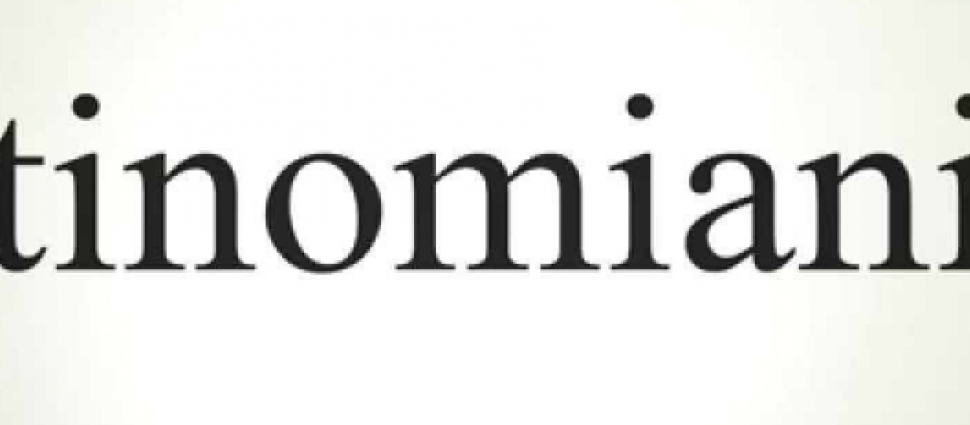Over the Top

Aug 17, 2016
Although the antinomian-neonomian controversy of the 1690’s (see part 1) involved godly ministers who were all part of the same but broad Reformed family—most of them had even formally united together on the basis of Reformed confessions—they did not treat one another very well during their public debate. This debate among “friends” began with a bang and only continued to get worse. Indeed, the caustic rhetoric and over the top charges were at times out of control. There is no question that the manner of this debate sullied the Dissenters’ name and cause.
Both the Presbyterians and the Congregationalists were, of course, at fault for infusing heat into the debate and for overreaching at times. Richard Baxter did not help matters when he used the name Jezebel to refer to Tobias Crisp. Also, Daniel Williams didn’t bring calm to the brewing storm when he went overboard in his attack on Crisp, which was occasionally misguided. Still further, the charge of antinomianism inflamed the debate. Nevertheless, the lion’s share of the blame belonged to the Congregationalists, a point observed by several historians, including Bogue and Bennett. The Congregationalists relentlessly went after Williams and accused him of not only contradicting the Thirty-nine Articles and the Westminster Standards on some doctrines but of heterodoxy and heresy: Arminianism, Semi-Socianianism/Socinianism, Pelagianism and legalism or justification by works. Williams was looked upon “as undermining the very foundation of the Gospel (Bogue and Bennett),” and so was “run down, both from the pulpit and the press, as a notorious heretic (Walter Wilson).”
Isaac Chauncy was particularly nasty. After noting that he had been reading books all his life, Williams said that he had “never met with a Tract parallel to his [Chauncy], for abusive Language, violent Rage and uncharitable Censures.” Williams’ comment should not be dismissed as a biased participant because there is a large measure of truth to it as even a quick reading of Chauncy’s book will demonstrate. Bogue and Bennett pointed out that Chauncy’s “spirit was bad, and his accusations against Dr. Williams for heresy were numerous; but they were mostly as weak as they were bitter.” Chauncy even coined a new term “Neonomianism” in order to “disgrace Dr. Williams’s sentiments, and his book.”
Of all the heated writing produced by this controversy, and there was a lot of it, J.I. Packer observed that Robert Traill’s pamphlet was the best and the coolest. The Presbyterians, however, did not share Packer’s assessment. In fact, Edmund Calamy described it as “angry letter,” commenting that with its appearance “the hopes of a free brotherly Correspondence vanish’d away.” The Presbyterians were furious with Traill in part because they understood him to be accusing them of rationalism, Arminianism, Pelagianism, Popery and of corrupting the gospel. At one point in his letter Traill presented himself and his cohorts as being the true proclaimers and defenders of the gospel and the Reformed faith; while the Presbyterians had imbibed Arminian schemes of the gospel, vilified and contemned their opponents, and were probably closet Pelagians and Arminians. Traill even suggested that their true colors would soon be exposed and that the people they had “seduced by their craft” would then turn on them. Contrary to Packer, Traill’s letter was anything but cool.
The fact of the matter is that Williams and his fellow moderate Presbyterians such as John Howe and William Bates were not Pelagians or Arminians. David Field has recently shown that they were “committed to the fundamentals of a Calvinist theology.” Though it may be true that they veered somewhat from some forms or formulas of Calvinism, the Congregationalists overreached with their accusations of heresy, which in turn made their heated rhetoric unnecessary, even ridiculous. Unfortunately, in-house theological debates do seem to bring out the worst in theologians. Robert Traill noted, somewhat ironically as we have seen, that “it is a sad but true observation, That no contentions are more easily kindled, more fiercely pursued, and more hardly composed, than those of divines; sometimes from their zeal for truth; and sometimes from worse principles, that may act in them, as well as in other men.” In reflecting upon this statement Peter Toon quipped, “will theologians ever learn?”
Another lesson then that should be gleaned from this controversy is that we need to be careful to avoid using over the top language. Overreaching is a sign of a lack of charity or incompetence or both. Consequently, it makes the accuser and his position look bad. And if he is on the side of truth, then he, instead of his message, will be the reason people stumble at the truth. Furthermore, if you come out with both guns blazing then you will squelch constructive dialogue and diminish the chances of an edifying resolution. This is not to say that you shouldn’t argue your case or even that you shouldn’t do so vigorously. Present your case well for what you believe and why you believe your opponent is in error. But do so without the inflammatory and excessive language.
Sadly, the use of exaggerated language in debate is something that we still witness today. The internet surely has helped us in this regard. In the 1690’s one had to wait for the next pamphlet to come off the presses or for the next lecture to be given. But now the publication of outrageous theological discourse is one click away. Peter Toon was right to ask: will theologians ever learn?





